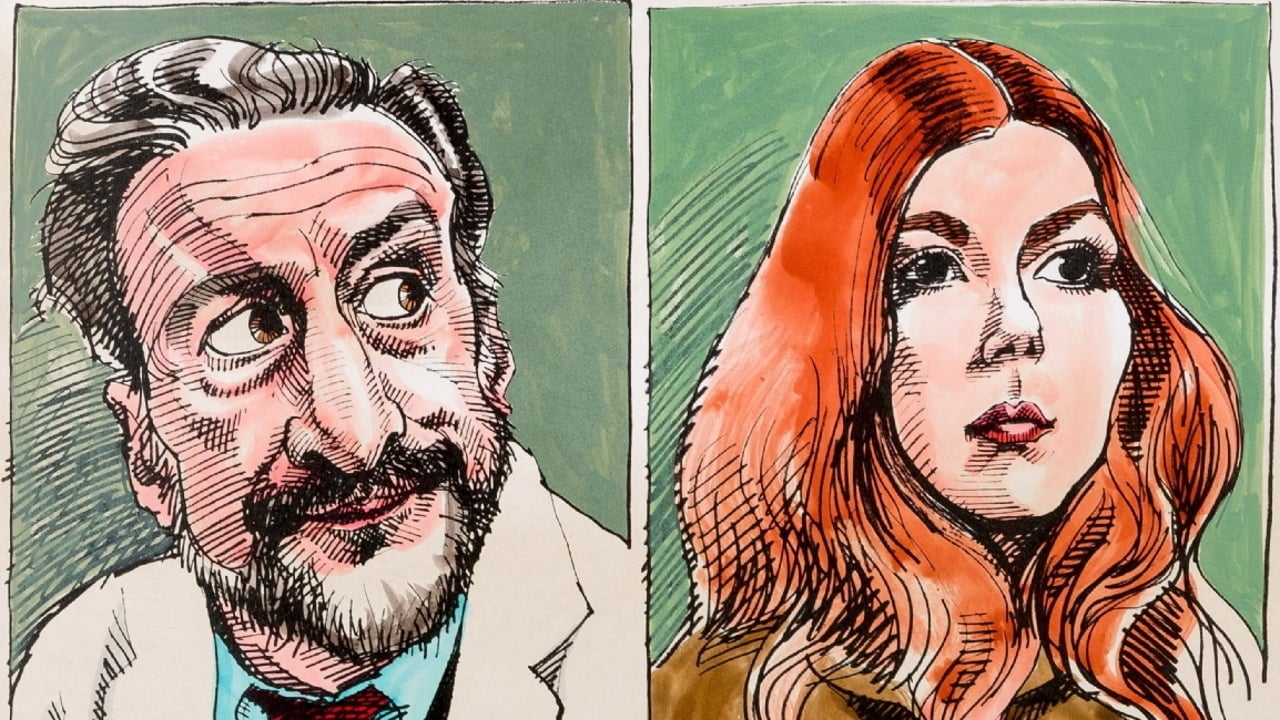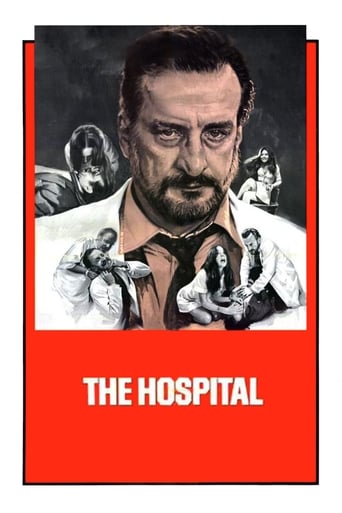

The movie has its flaws but script by Chayefsky elevates this to a great commentary on the modern organisation.
... View MoreAn over-burdened doctor (George C. Scott) struggles to find meaning in his life while a murderer stalks the halls of his hospital.Although the film was not quite as funny as I think it could have been, it still has its moments and successfully makes a scathing attack on the medical system. Today (2017) the attack is no less potent, so the film has really stood the test of time. The writing is superb, and there is no surprise that it took home so many awards on the script.George C. Scott is excellent, as always, and Diana Rigg makes her American debut. Her character is unusually flaky and may not be to everyone's liking. The mystery aspect is quite fun, though it does not seem that enough clues are given for the audience to make any sort of informed guess.
... View More"The Hospital" is pretty much what you'd expect from a Paddy Chayefsky movie on healthcare. Its Manhattan Hospital Center is a Gothic horror funhouse in which patients are killed either due to neglect, the wrong diagnosis or any other manner of bureaucratic nightmare. All of this is played to the ridiculous extremes and it makes for some hilarious dark comedy.George C. Scott is the film's fiery main attraction (the man is incomparable, really), and his frustrated character is both energizing and exhausting. And his one-on-one dialogues with Diana Rigg help give this movie its emotional core. But the outlandishness of this hospital is what makes this movie memorable for me. Which honestly isn't supposed to subtract in any way from Scott's contribution (seriously, watch this for him), but there's also Barnard Hughes' tirade in the OR, Mrs. Cushing's badgering of despondent patients for their Blue Cross numbers, and the kind of farcical healthcare environment that really hits a little too close to home, these days.This is riveting absurdity.8/10
... View MorePaddy Chayefsky's scathing, sardonic take on the medical establishment is still very relevant today. Like his later, more acclaimed "Network", The Hospital at the time it was released probably seemed like hard-edged satire. 40 years later in the context of an even more insane and corrupt society, these films seem frighteningly real. As much as this movie belongs to Cheyefsky, it equally belongs to George C. Scott, perfectly cast as the alcoholic chief of medicine who has grown despondent over the state of both his personal and professional life. This is the very essence of pathos, and indeed pathos is a specialty of Paddy Cheyefsky. Maybe The Hospital could be called "Network meets Mash", but one thing is for sure...its another forgotten gem from the 70s that deserves to be revisited.The first hour of The Hospital is simply marvelous. Dr. Bock (Scott) somewhat reluctantly investigates a sudden rash of mysterious deaths, as well as dealing with other odd little situations, while simultaneously seeking professional help from the staff psychiatrist for his growing suicidal tendencies. The breakneck pace sometimes undermines the outstanding dialog, there is so much to see and hear in this film it almost demands multiple viewings...yet it is so entertaining that I didn't mind watching again (and again).There are two scenes that really stood out to me: 1) An early conversation between Bock and a young doctor (Robert Walden) where the doctor details a preposterous case of malpractice that has recently occurred. It's one of those scenes that are so well-written and well-crafted, you might actually forget you are watching a movie and think you are eavesdropping on a couple of doctors!2) The scene where Bock first meets Barbara (Diana Rigg) and eventually goes into a drunken rant about the state of the medical profession. This scene blows me away every time I see it and Scotts cryptic line "we cure nothing...we heal nothing" really resonates. I think Scott is actually better here than he was in his Oscar winning role in "Patton". So compelling and believable is he when he talks about the state of his marriage and family...again its like eavesdropping.Barbara's character is trying to take her father out of the hospital and back to his Indian reservation, and this subplot intertwines with the main plot for a second half that sometimes strays into near-slapstick hilarity and leads to an ending that isn't quite as fulfilling as what I hoped it would be. The first half of the film was so good and hard-hitting that maybe I expected a better closing salvo than "someone has to be responsible"...i guess this says...as despondent as Bock is he hasn't lost his moral compass (maybe getting laid was all he needed?). I wanted something different, and expected something different from a great screenwriter and a movie made in this revolutionary time period, but hey its still a really good, must-see film...funny, cynical, enlightening...and quite memorable.I guess I have to rate it in halves; 10 for the first half and 6 for the second for an overall 8. Give it a try, if anything I think I'm being too hard on this movie, which is another 70s near-classic.
... View More